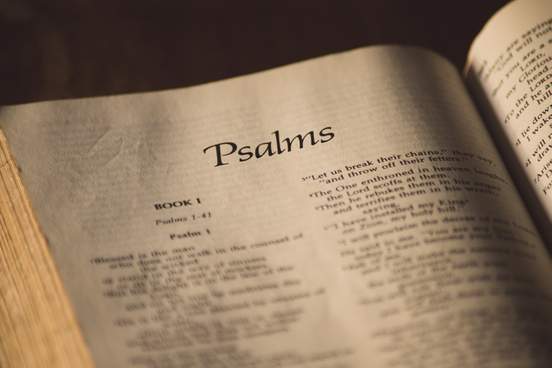The Literacy Blog
Welcome to the literacy blog, a blog for teachers, parents, educational psychologists and educators interested in literacy..

The strange case of the word ‘yacht’
Share this:, sign-up to my newsletter.
Hi, my name's John Walker and I'm the director of Sounds-Write. By giving your email address and clicking on the link you receive in your email, you will receive a free sample of our ‘Help your child to read and write’ workbook and our monthly newsletter. We won’t pass your email address on to anybody else and you can unsubscribe at any time.
Email address:
6 thoughts on “ The strange case of the word ‘yacht’ ”
What serendipity!
Tonight I was reading to LittlePaperMover and the word yacht came up. I thought the word was fascinating from a SP point of view, and tried to work out the sound representations. (I am with your pupil's as i thought it was Y-a-cht, for the same reason they did. )!LittlePaperMover was incredibly unimpressed with the phonics lesson and put her head under the duvet and la-la-lahd until I shut up and got on with the story.
Tomorrow I shall tell her that not only is she an ungrateful small person but that yacht is a pirate word. She does love a pirate. She might learn how to spell yacht.
Hi Papermover, Serendipidous indeed! 'Yacht' is pretty low frequency I would have thought but it does have a habit of popping up in children's stories. If it appears in the middle of a bedtime story, I would definitely leave it until the following day to talk about. As a way of doing it, you might word build it, which would leave the spelling cht for /t/ until last – setting LittlePaperMover up for success. Then, when you've built the word, point to the a and say that it is /o/ as in words like 'was', 'swan', 'swallow', etc. When you point to the cht, you tell her that it's a one-off spelling of the sound /t/. And, then you can talk about derivation or pirates, a technique which is often a useful mnemonic. Similarly if it comes up in the middle of a lesson at school, where at KS2, for example, the focus would probably be on comprehension. The teacher should supply the word and return to it later or on the following day in a phonics session. Anyway, thanks for telling us about your experience. I look forward to some follow-ups.
You and I mean different things by “decodable”.
For me, a decodable word is one which can be read aloud (“decoded”) even if it has never been seen before. On this definition, yacht is not decodable.
Since you think yacht is decodable, you must have a different definition of “decodable”. What is it?
A second example: take the word fleury. A real word, but I expect you haven’t come across it before. The correct way of breaking it up is f l eu r y. But even though I have told you that, I don’t think you will be able to read it aloud correctly. That shows that it is not decodable (in my sense).
Best wishes,
Hi Max, We certainly do have different understandings of the word decodable. For you, 'a word is decodable if it can be read aloud even if it has never been seen before'. For a child in reception, the word 'vet' may not be decodable if, for example, the child has not yet been taught that v represents the sound /v/. So, the ability to decode partly depends on the level of code knowledge a child has. I say 'partly' because decoding ability also depends on the skills a person brings to their reading. Can they segment and blend proficiently enough to be able to use their code knowledge efficently? And then there's the question of a person's understanding of how the code works. So, do they understand that sounds can be spelled with more than one letter, that sounds can be spelled in (often) multiple ways, and do they also know that many spellings can represent different sounds? Given that all of these aspects of decoding have been well taught, I would fully expect some Y2 children and very many Y3 and above pupils to be able to decode 'yacht' successfully, although they may well baulk a little when it came to thinking about remembering how to spell it. That's where the teaching come in! I am also a little surprised you patronise me by assuming I wouldn't be familiar with the word 'fleury' or be able to read it. But, you know what, even if I hadn't been reading words like this since I was in primary school, I would almost certainly be able to decode the word because of the similarity with other spellings of /er/. Of course, it goes without saying that any pupil learning French would be able to handle it after learning 'travailleur', 'meilleur', or, perhaps, the more obvious 'fleur'.
I agree with you John … I like the first Y-ach-t and thought that straight away … probably because I am of the right age to be a big U2 fan. I'll tell my children about "Achtung Baby" to help them remember :).
Thanks again John for making English decodable …
Hmm. Actually, yacht isn't a "pirate ship" word, it's a "hunter of pirate ships" word. (Today's mega-yachts might be considered private pirate ships, but that too iw a whole nother story.)
The only stange thing about the word "yacht" is that it is considered a "strange case." Your first point is well-taken: The English language can easily incorporate pretty much any loan word from any language . This is a strength/asset of the language, not a weakness. It's what makes English the most widely used language in the world. However, there are a number of words, mostly personal and place names, whose Alphabetic Code correspondences follow the loan word history. So if the name of a city or person is written as Jaeger , it could be spoken as yayger, yogger, jayger, or jogger. And the pronunciation of the "er" would vary depending upon whether it was BritSpeak, YankSpeak, or some other Speak. The "assignment" of the correspondences is by convention, but the word is decodable whatever the convention, and once you know the convention, it's "no problem."
Had history gone differently, we could be writing "yacht" as "jacht," and if we are txtg, keying the word as "yot" is OK. The Correspondences are the link between the written and spoken language, but the action is in the Correspondences, not in the sounds or the symbols per se.
Your second point: having analysed the word in the way suggested above, children are far more likely to remember how to spell it in the future is arguable.
1. Some kids will have encountered the word in spoken or written communication and will be able to read it without any additional instruction. For those who can't, saying, "The pronunciation here is 'yot.'" is the the only " reading instruction" needed.
2. Kids are rarely going to have occasion to spell the word, and when they do, there are many alternative words they can use. "Ship" would work for them in most situations.
The nautical Technical Lexicon is large, and there is much more ambiguity in the definition of the word "yacht" than there is in its Alphabetic Code correspondences. Is a dinghy a yacht? How about a cruiser? Is a yacht a boat or a ship? These distinctions are relevant to composition instruction and to Thesaurus use, but they are unproductively redundant in reading instruction.
The broader point is that all English words are decodable. If a word isn't decodable, it's unintelligible. Fxjk is not decodable. F**k, though is decodable, given that you know some specific conventions beyond the Alphabetic Code. Those conventions are no more complicated than those entailed in punctuation marks, or in contractions, abbreviations, and wingdings. But if you haven't been taught the conventions, you will encounter difficulty in reading the text.
The standard definition of "decodable" can easily be checked by googling the term. (The definitions matches your definition.) However, there are "non-standard" definitions of "decodable, such as Max's. When the referents for the term are clear, as in this thread, there is "no problem." But there are big communication problems with non-standard terms in general and with the term "decodable" in particular. Few texts that are proffered as "decodable" actually conform to the standard definition.
Comments are closed.
- 1.1 Etymology
- 1.2 Pronunciation
- 1.3.1 Derived terms
- 1.3.2 Translations
- 1.4.1 Translations
- 1.5 Anagrams
- 2.1 Etymology
- 2.2 Pronunciation
- 2.4 Further reading
- 3.1 Etymology
- 3.2 Pronunciation
- 3.4 References
- 3.5 Further reading
- 4.1 Etymology
- 5.1 Etymology
- 5.3 References
- 6.1 Etymology
- 6.3 References
- 7.1 Alternative forms
- 7.2 Etymology
- 7.3.1 Declension
- 7.3.2 Derived terms
- 7.4 Further reading
Circa 1557; variant of yaught , earlier yeaghe ( “ light, fast-sailing ship ” ) , from Dutch jacht ( “ yacht; hunt ” ) , in older spelling jaght(e) , short for jaghtschip ( “ light sailing vessel, fast pirate ship ” , literally “ pursuit ship ” ) , compound of jacht and schip ( “ ship ” ) .
In the 16th century the Dutch built light, fast ships to chase the ships of pirates and smugglers from the coast. The ship was introduced to England in 1660 when the Dutch East India Company presented one to King Charles II, who used it as a pleasure boat, after which it was copied by British shipbuilders as a pleasure craft for wealthy gentlemen.
Pronunciation
- ( UK ) enPR : yŏt , IPA ( key ) : /jɒt/
- ( US ) enPR : yät , IPA ( key ) : /jɑːt/ , /jɑt/
| Audio ( ): | ( ) |
- Rhymes: -ɒt
yacht ( plural yachts )
- 1897 December (indicated as 1898 ), Winston Churchill , chapter X, in The Celebrity: An Episode , New York, N.Y.: The Macmillan Company ; London: Macmillan & Co., Ltd. , →OCLC : The skipper Mr. Cooke had hired at Far Harbor was a God-fearing man with a luke warm interest in his new billet and employer, and had only been prevailed upon to take charge of the yacht after the offer of an emolument equal to half a year's sea pay of an ensign in the navy.
- 1907 August, Robert W[illiam] Chambers , chapter VI, in The Younger Set , New York, N.Y.: D. Appleton & Company , →OCLC : “I don’t mean all of your friends—only a small proportion—which, however, connects your circle with that deadly, idle, brainless bunch—the insolent chatterers at the opera, [ … ] , the chlorotic squatters on huge yachts , [ … ] , the neurotic victims of mental cirrhosis, the jewelled animals whose moral code is the code of the barnyard—!"
Derived terms
- motor yacht , motoryacht , MY
- sailing yacht , steam yacht , SY
- yacht person
Translations
| (yaḵt) (yaḵt) (zbosanav) (jáxta) (jáhta) (rwakhle) (tsiyu) (yóutǐng) , , , (iaxṭa) , (giot), (thalamigós) (yakhta) (yāxṭ) , (yotto) (äxta) (tuuk kɑmsaan) (yoteu) (yahta) (hư̄a bai) (jahta) (darvuult ongoc) (yât) (jáxta) , , (rʉʉa-bai), , (jáxta) , |
| (jahta) , (thalamigós) (yakhta) (fune), (bōto) , |
yacht ( third-person singular simple present yachts , present participle yachting , simple past and past participle yachted )
- ( intransitive ) To sail , voyage , or race in a yacht .
| (darvuult ongocoor javax) |
- Cathy , tachy , tachy- , yatch
Borrowed from English yacht , from Dutch jacht .
- IPA ( key ) : /jɔt/ , /jot/ , ( Canada ) /jat/
| Audio: | ( ) |
yacht m ( plural yachts )
Further reading
- “ yacht ”, in Trésor de la langue française informatisé [ Digitized Treasury of the French Language ] , 2012 .
Unadapted borrowing from English yacht .
- IPA ( key ) : /ˈjɔt/ [ 1 ]
- Rhymes: -ɔt
yacht m ( invariable )
- the letter Y in the Italian spelling alphabet
- ^ yacht in Luciano Canepari , Dizionario di Pronuncia Italiana (DiPI)
- yacht in Treccani.it – Vocabolario Treccani on line , Istituto dell'Enciclopedia Italiana
Borrowed from English yacht .
yacht ? ( plural yachts )
- ( Jersey ) yacht
Norwegian Bokmål
From Dutch jacht , via English yacht .
yacht m ( definite singular yachten , indefinite plural yachter , definite plural yachtene )
- “yacht” in The Bokmål Dictionary .
Norwegian Nynorsk
yacht m ( definite singular yachten , indefinite plural yachtar , definite plural yachtane )
- “yacht” in The Nynorsk Dictionary .
Alternative forms
yacht c
- yacht in Svenska Akademiens ordlista ( SAOL )
- yacht in Svensk ordbok ( SO )
- yacht in Svenska Akademiens ordbok ( SAOB )
- yacht in Svenskt nautiskt lexikon (1920)
- English terms derived from Dutch
- English 1-syllable words
- English terms with IPA pronunciation
- English terms with audio pronunciation
- Rhymes:English/ɒt
- Rhymes:English/ɒt/1 syllable
- English lemmas
- English nouns
- English countable nouns
- English terms with usage examples
- English terms with quotations
- English verbs
- English intransitive verbs
- en:Watercraft
- French terms borrowed from English
- French terms derived from English
- French terms derived from Dutch
- French 1-syllable words
- French terms with IPA pronunciation
- French terms with audio pronunciation
- French lemmas
- French nouns
- French countable nouns
- French masculine nouns
- fr:Watercraft
- French loanwords with irregular pronunciations
- Italian terms borrowed from English
- Italian unadapted borrowings from English
- Italian terms derived from English
- Italian 1-syllable words
- Italian terms with IPA pronunciation
- Rhymes:Italian/ɔt
- Rhymes:Italian/ɔt/1 syllable
- Italian lemmas
- Italian nouns
- Italian indeclinable nouns
- Italian countable nouns
- Italian terms spelled with Y
- Italian masculine nouns
- Norman terms borrowed from English
- Norman terms derived from English
- Norman lemmas
- Norman nouns
- Jersey Norman
- nrf:Watercraft
- Norwegian Bokmål terms derived from Dutch
- Norwegian Bokmål terms derived from English
- Norwegian Bokmål lemmas
- Norwegian Bokmål nouns
- Norwegian Bokmål terms spelled with C
- Norwegian Bokmål masculine nouns
- nb:Watercraft
- Norwegian Nynorsk terms derived from Dutch
- Norwegian Nynorsk terms derived from English
- Norwegian Nynorsk lemmas
- Norwegian Nynorsk nouns
- Norwegian Nynorsk terms spelled with C
- Norwegian Nynorsk masculine nouns
- nn:Watercraft
- Swedish terms borrowed from English
- Swedish terms derived from English
- Swedish lemmas
- Swedish nouns
- Swedish common-gender nouns
- sv:Watercraft
- Pages with entries
- Pages with 7 entries
- Entries with translation boxes
- Terms with Albanian translations
- Terms with Arabic translations
- Terms with Moroccan Arabic translations
- Terms with Armenian translations
- Terms with Azerbaijani translations
- Terms with Basque translations
- Terms with Belarusian translations
- Terms with Bulgarian translations
- Terms with Burmese translations
- Terms with Catalan translations
- Terms with Cherokee translations
- Mandarin terms with redundant transliterations
- Terms with Mandarin translations
- Terms with Czech translations
- Terms with Danish translations
- Terms with Dutch translations
- Terms with Esperanto translations
- Terms with Estonian translations
- Terms with Faroese translations
- Terms with Finnish translations
- Terms with French translations
- Terms with Galician translations
- Terms with Georgian translations
- Terms with German translations
- Terms with Greek translations
- Terms with Hebrew translations
- Terms with Hindi translations
- Terms with Hungarian translations
- Terms with Icelandic translations
- Terms with Irish translations
- Terms with Italian translations
- Terms with Japanese translations
- Terms with Kazakh translations
- Terms with Khmer translations
- Terms with Korean translations
- Terms with Kyrgyz translations
- Terms with Lao translations
- Terms with Latvian translations
- Terms with Lithuanian translations
- Terms with Macedonian translations
- Terms with Malay translations
- Terms with Manx translations
- Terms with Maori translations
- Terms with Marshallese translations
- Terms with Mongolian translations
- Terms with Norwegian Bokmål translations
- Terms with Norwegian Nynorsk translations
- Terms with Occitan translations
- Terms with Persian translations
- Terms with Polish translations
- Terms with Portuguese translations
- Terms with Romanian translations
- Terms with Russian translations
- Terms with Scottish Gaelic translations
- Terms with Serbo-Croatian translations
- Terms with Slovak translations
- Terms with Slovene translations
- Terms with Spanish translations
- Terms with Swedish translations
- Terms with Tagalog translations
- Terms with Thai translations
- Terms with Turkish translations
- Terms with Ukrainian translations
- Terms with Uzbek translations
- Terms with Vietnamese translations
- Terms with Volapük translations
- Mongolian terms with redundant script codes
- Requests for gender in Norman entries
Navigation menu
- Cambridge Dictionary +Plus
Meaning of yacht in English
Your browser doesn't support HTML5 audio
- They spent their annual holiday on a chartered yacht in the Caribbean .
- He spent three days adrift on his yacht.
- His eyes were fixed on the distant yacht.
- If they can afford a yacht, they must be rolling in it.
- She sailed around the world single-handed in her yacht.
- cabin cruiser
- dragon boat
yacht | American Dictionary
Examples of yacht, collocations with yacht.
These are words often used in combination with yacht .
Click on a collocation to see more examples of it.
Translations of yacht
Get a quick, free translation!

Word of the Day
situationship
a romantic relationship between two people who do not yet consider themselves a couple but who have more than a friendship

A safe pair of hands (Newspaper idioms)

Learn more with +Plus
- Recent and Recommended {{#preferredDictionaries}} {{name}} {{/preferredDictionaries}}
- Definitions Clear explanations of natural written and spoken English English Learner’s Dictionary Essential British English Essential American English
- Grammar and thesaurus Usage explanations of natural written and spoken English Grammar Thesaurus
- Pronunciation British and American pronunciations with audio English Pronunciation
- English–Chinese (Simplified) Chinese (Simplified)–English
- English–Chinese (Traditional) Chinese (Traditional)–English
- English–Dutch Dutch–English
- English–French French–English
- English–German German–English
- English–Indonesian Indonesian–English
- English–Italian Italian–English
- English–Japanese Japanese–English
- English–Norwegian Norwegian–English
- English–Polish Polish–English
- English–Portuguese Portuguese–English
- English–Spanish Spanish–English
- English–Swedish Swedish–English
- Dictionary +Plus Word Lists
- English Noun
- American Noun
- Collocations
- Translations
- All translations
To add yacht to a word list please sign up or log in.
Add yacht to one of your lists below, or create a new one.
{{message}}
Something went wrong.
There was a problem sending your report.
- Preparation
- General FAQ
- Exam Result
Yatch or Yacht – Which is Correct?
- by Sarah Thompson
- March 1, 2024
Yacht or yatch, which is it? This is a common question that many people have when it comes to spelling this particular word. Whether you’re a native English speaker or someone who is learning English as a second language, it’s important to get the spelling and usage of words right. In this case, the correct spelling is “yacht.”
Now, let’s learn why “yacht” is the correct spelling and how you can remember it with a few simple examples.
Firstly, the word “yacht” is of Dutch origin, and it refers to a luxurious, recreational boat typically used for pleasure or racing. This word has been a part of the English language for centuries, and over time, it has become widely accepted and recognized.
To understand why “yacht” is the correct spelling, let’s look at the pronunciation of the word. It is important to remember that the “ch” in “yacht” is pronounced as a “k” sound, as in the word “cat.” This pronunciation is consistent with other words like “ache,” “architect,” and “mocha.”
Now, let’s consider some examples to solidify your understanding. Imagine you are having a conversation with someone, and you want to mention a luxurious boat that you saw during your vacation. You could say, “I saw a beautiful yacht in the harbor yesterday.” Here, using the correct spelling “yacht” helps you effectively communicate your message, ensuring that others can understand the specific type of boat you are referring to.
Furthermore, imagine you are reading a brochure about an upcoming regatta, a prestigious sailing competition. The brochure would likely use the correct spelling “yacht” to describe the boats participating in the event, such as “The world’s finest yachts will be racing against each other.”
It is worth noting that common misspellings such as “yatch” or “yeacht” may occur due to the “ch” sound in “yacht.” However, it is essential to remember that confusing the “ch” sound with a “tch” sound, as in the words “catch” or “watch,” is incorrect.
To ensure that you are using the correct spelling “yacht,” you can try a simple trick to remember it. Think of a yacht as a “yummy and cool boat.” By associating the word “yummy” with the letter “y” and the word “cool” with the “ch” sound, you can remember the correct spelling and pronunciation.
In conclusion, the correct spelling of this luxurious boat is “yacht.” The word has a rich history and is widely recognized in the English language. Remember to pronounce the “ch” sound as a “k” sound. By using the correct spelling “yacht” in your conversations and writing, you can effectively communicate and demonstrate your understanding of the English language. So, next time you encounter this word, remember, “yacht” is the way to go!
Related Posts
Corrisponding or corresponding – which is correct.
When it comes to the word “corrisponding” or “corresponding,” the correct spelling is “corresponding.” The word “corrisponding” does not exist in the English language. I…
Surprise or Suprize – Which is Correct?
Surprise or suprize? That’s the ultimate question. If you’ve ever encountered these two spellings, you might have wondered which is the correct one. The answer,…
Delicius or Delicious – Which is Correct?
Ah, the age-old question of spelling! It’s a common dilemma that many English learners encounter: should it be “delicius” or “delicious”? Well, let’s dive right…
Fruition or Fruittion – Which is Correct?
Are you wondering whether to spell it as “fruition” or “fruittion”? Well, let me clear up the confusion for you. The correct spelling is “fruition.”…
During or Durring – Which is Correct?
During or Durring – Which is Correct? When it comes to the correct spelling of the word, the answer is quite simple – during. Yes,…
How To Spell yacht ?
How to pronounce yacht.
Correct pronunciation for the word "yacht" is [jˈɒt], [jˈɒt], [j_ˈɒ_t].
Definition of yacht
A swift-sailing, light, and elegantly furnished vessel, used either for private parties of pleasure, or as a vessel of state to convey princes, &c., from one place to another.
To sail in a yacht.
Nuttall's Standard dictionary of the English language By Nuttall, P.Austin
What are the misspellings for yacht?
What are similar-sounding words for yacht, what is the present tense of yacht.
- In the present tense, the personal forms of the verb " yacht " are:
- - You yacht
- - He yachts
- - She yachts
- - It yachts
- - They yacht
What is the past tense of Yacht?
- The personal forms of the verb " yacht " in the past tense are as follows:
- 1. I yachted
- 2. You yachted
- 3. He yachted
- 4. She yachted
- 5. It yachted
- 6. We yachted
- 7. You yachted
- 8. They yachted
What is the adverb for yacht?
The adverb form of the word "yacht" is "yachtingly" .
What is the adjective for yacht?
The adjective form of the word "yacht" is "yachting" .
Usage over time for yacht:
This graph shows how "yacht" have occurred between 1800 and 2008 in a corpus of English books.
What is the plural form of yacht?
The plural of the "yacht" can be the " yachts ".

What is the singular form of yacht?
The singular of the "yacht" can be the "yacht".
Synonyms for Yacht:
- aircraft carrier
- cabin cruiser
- fishing boat
Nearby words
- Yacca Podocarp
- yacht chair
- yacht clubs
- Correct spelling for yacht [Infographic] | Spellchecker.net
- yacht - English spelling dictionary
- Yacht | Definition of yacht by Merriam-Webster
- Yacht definition and meaning | Collins English Dictionary
- Yacht | Definition of yacht at Dictionary.com
- Yacht dictionary definition | yacht defined
Infographic

Add the infographic to your website:

Word of the day
Myrmecology.
- jyrmecology
- kyrmecology
- m6rmecology
- Spell Check in Excel
- Spell Check in Word
- Outlook Spell Check
- WordPad Spell Check
- Spell Check in PowerPoint
- Spell Check for Mac

- Dictionaries home
- American English
- Collocations
- German-English
- Grammar home
- Practical English Usage
- Learn & Practise Grammar (Beta)
- Word Lists home
- My Word Lists
- Recent additions
- Resources home
- Text Checker
Definition of yacht noun from the Oxford Advanced Learner's Dictionary

Was this all a joke?
You could be excused for thinking that much of English pronunciation was invented by a trickster god, one with a particularly cruel streak. After all, how else could we have come to a place where through doesn’t rhyme with though , enough doesn’t rhyme with lough , and cough doesn’t rhyme with hiccough ? We’re happy to tell you that there was no trickster god involved: there are reasons for why things are the way they are. Read on, and we’ll explain one of the great mysteries of our language: why so many of the letters seem to be just sitting around doing no work.

Some letters are silent in English because they are part of sound combinations that are so uncommon that English speakers ultimately resist pronouncing them. Our language is a glutton, and it has taken words from an enormous number of other languages. Since we have words borrowed from languages that have different sound patterns, this results in English speakers pronouncing the words differently than in their languages of origin.
That’s why the m is silent in mnemonic , a word meaning “assisting memory” or “relating to memory.” Mnemonic came to English from Greek through Latin during the 1600s, when many words of Classical origin were introduced by scholarly writers.
It is documented that the m was pronounced before the n as recently as the late 1800s, and has since dropped away.
There are very few words in English that begin with ¬ mn , and most of them are rare words that share the ultimate Greek root of the word meaning “to remember,” including mneme (pronounced /NEE-mee/), mnestic , mnemotechnical , and the name of the Greek goddess of memory, Mnemosyne .

psychology, psalm, pseudo
There are thousands of English words with Greek roots, and most of these begin in a manner that looks pretty reasonable to many users of English (think of words beginning with anti , like antipathy ). However, there are others from Greek which begin with a pair (or more!) of consonants that English does not use so often. One of the more common cases of this is the combination ps , seen in words like psalm , psalter , and pseudo (which comes from the Greek word meaning “to lie” or “to cheat”).
Psychology and the words related to it are the most frequently encountered of these words, which are pronounced with an /s/ sound—the p is silent in English. In German and French, the p is pronounced, however, and sounded just before the s , and over a hundred years ago the editor of the Oxford English Dictionary made it known that he thought we should restore the /p/ in English pronunciation, too.
His recommendations were ignored.

pneumatic, pneumonia
Another silent p is found immediately before the letter n in words like pneumatic and pneumonia .
These words came to English through Latin from the Greek word meaning “wind,” “breath,” “air,” or “spirit,” pneumatic means “relating to or using air” (such as tires on a car) and pneumonia refers to a disease of the lungs. Most of the English words you come across that begin with pneu - are going to directly relate to air (especially in medical or scientific contexts), but every once in a while one will sneak in with a slightly different type of meaning, as with pneumatology ("the study of spiritual beings or phenomena").
For words spelled with this pattern, the p is still pronounced in modern French.

yacht, night, light
Yacht came to English from Dutch, and the Dutch pronounce the ch with a rasping sound from the back of the throat, a sound heard in German words like buch (“book”) and Scots words like loch (“lake”).
Linguists use the term velar fricative to describe this sound, with velar from the Latin word for “curtain” meaning the soft palate or the flap at the back of the roof of the mouth, and fricative from the Latin word meaning “to rub.” Since this sound isn’t part of conventional English phonetics today, the ch has become silent over time.
The same thing can be said for words that developed directly from Old English and are spelled with what is now a silent gh , like light, fright, night , and sight , which were originally pronounced with that raspy back-of-the-throat sound. The now-silent ch and gh in these words in fact represent the same former pronunciation, transcribed in different ways. In fact, the Dutch and German ancestors of sight and light and right were spelled with ch rather than gh .

Perhaps the oddest-looking collection of consonants at the beginning of an English word is the strange chth in chthonic , pronounced /THON-ik/, which comes from the Greek word meaning “earth” or “world” and is a fancy way to say “relating to the underworld” or “infernal.”
In Greek mythology, it referred to the realm of the dead, where spirits would reside in the afterlife, overseen by Hades, king of the underworld (and the underworld itself was sometimes called Hades ). Like the now-silent ch in yacht , the ch , originally produced as a rasping sound from the back of the throat, has vanished in modern English.
If you really like using this word, but think that it’s kind of weird that the first C gets all the attention while the C that comes at the end does all the actual work, you can instead use chthonian , which means the same thing.

Chutzpah was defined in jocular fashion by Leo Rosten in his 1968 book The Joys of Yiddish with this: “Chutzpah is that quality enshrined in a man who, having killed his mother and father, throws himself on the mercy of the court because he is an orphan.” Being a dictionary, we don’t really do jocular; our definition is “supreme self-confidence,” or “nerve, gall .”
One of the many words English has borrowed from Yiddish, chutzpah is spelled with the ch that is now usually pronounced as /h/, making the c silent. The ch stood for the rasping sound from the back of the throat that exists in many languages, but not English, so it has dropped away.

calm, palm, talk
We mostly don’t hear the L in words like palm and calm , and this is also a pronunciation that has changed. The “dark” sound of the letter L is one that can change the sound of the vowel that comes before it as it melts into the m . This is why the vowel sounds are different in word pairs like calm and cat and talk and tack .
(If you want to hear the difference between a "light" and "dark" L, say the word lull . The initial /L/ is "light", pronounced at the front of the mouth, while the final /L/ is "dark", spoken by raising the back of the tongue slightly.)
This is the same process that causes the sound of L to become a vowel sound in some Cockney accents, when a word like trouble is pronounced /TRUH-boe/ or in some pronunciations of help that don’t have a clear L sound.

should, would, could
Yes, the L in should and would used to be pronounced (but no, you are not making a mistake in not pronouncing it now). These words would have rhymed with gold and told (consider how we pronounce shoulder and boulder ). Accounts by language commentators from the 1500s show that these Ls were pronounced in refined speech, but then dropped during the following century.
It seems likely that could didn’t have the L in either spelling or pronunciation; notice that its root, can doesn’t have an L whereas shall and will (the roots of should and would ) do. The thought is that the L in could was later added by analogy—rightly or wrongly—to make it better match with would and should .

knife, knight, gnaw
The basic rule is: “word + time = change.” The initial kn or gn sounds in words like knife, knight , and gnaw were pronounced several hundred years ago. Over time, the sound clusters have simplified into the single /n/ sound that we know (ahem) today. There isn’t necessarily a reason or any logic attached to all of these changes; in fact, if the spellings of these words didn’t fossilize the original way that they were pronounced, we wouldn’t have any reason to think about this kind of phonetic change.

wrap, write
Once upon a time the W in words like wrap and write was pronounced. Today we don’t hear it, and this time the reason is partially anatomical and not just phonetic (when we say the reason you don’t hear this is anatomical it is because of the shape of your lips, and not of your ears; your ears are just fine).
When you make the /r/ sound in modern English, your lips protrude a bit (say “ruh”) just as they do when you pronounce a /w/ sound (say “wuh”). Since these two sounds are made in ways that have physically similar lip positions and sounds that are difficult to distinguish when you say one right after the other, they eventually merged together.

soften, listen, often
The /t/ in words like soften, hasten , and fasten was originally pronounced, after the -en was added to the words soft, haste , and fast . Listen is a bit different, since it comes from from the Middle English word listnen , and evidence suggests that Middle English speakers wouldn’t pronounce /t/ when it was stuck between /s/ and /n/. (This may seem like a lot of history for a simple spelling explainer, but isn’t it nice to know that people who spoke Middle English many hundreds of years ago had to wrestle with tricky silent letters as well?)
Is the t in these words always silent, though? The t in often is in fact sometimes pronounced. Like the others in this category, it had been pronounced initially, and, also like the others, we hear the /t/ in the word’s root oft , which is now archaic for most of the senses of often , but is still used in compound adjectives like oft-repeated and oft-quoted . Ofttimes and oftentimes also have that archaic flavor but are still in active use. After the -en suffix was added to oft , the /t/ fell away in pronunciation, but remained in the spelling.
But in this case, the /t/ came back via a spelling-influenced pronunciation in the 1600s, as both literacy and printing expanded rapidly in England. There is evidence that Queen Elizabeth herself did not pronounce the /t/, resulting in the establishment of the prestige pronunciation for often that remains to this day (although pronouncing the t in often is by now a standard choice).

receipt, debt, indict
An artificial evolution is visible in the silent letters of words like receipt, debt , and indict . These words entered English from French in the medieval period, but later scholars recognized their Latin origins and stuck in the missing p, b , and c , just to make the etymological relationship completely explicit. The way we pronounce these words to this day reflects their French heritage (while their spelling reflects their more distant Latin roots). Other silent letters that scholars have snuck in to help English show off its Latin roots include the b in doubt and the l in balm .

Word of the Day
See Definitions and Examples »
Get Word of the Day daily email!
Games & Quizzes

Spelling & Pronunciation
Why is '-ed' sometimes pronounced at the end of a word, more commonly misspelled words, how to pronounce 'often', more commonly mispronounced words, every letter is silent, sometimes, grammar & usage, using bullet points ( • ), point of view: it's personal, 31 useful rhetorical devices, how to use em dashes (—), en dashes (–) , and hyphens (-), plural and possessive names: a guide, 200 new words and definitions added to merriam-webster.com, the longest long words list, pilfer: how to play and win, 8 words with fascinating histories, 8 words for lesser-known musical instruments.
Boat Reviews
- Boats Specs
- Marine Pros
- Boat Insurance
- Boat Warranties
- Boat Transport
- Boat Towing
- Marine Forecasts

Your Ultimate Boating Resource

What is the reason behind the spelling of the word ‘yacht’?
Yachts are known for their elegance, luxury and sophistication, but have you ever stopped to wonder why this nautical term is spelled the way it is? The spelling of the word ‘yacht’ is not intuitive and may leave some people bewildered. However, there is a fascinating history behind the word that dates back to the 16th century.
The word ‘yacht’ originally comes from the Dutch word ‘jacht’, which means “hunt”. During the 16th century, the Dutch used small, fast vessels to chase pirates and smugglers, and these ships were called ‘jachts’. These vessels were generally smaller than traditional sailing ships and were built for speed and agility.
As these Dutch ships began to gain popularity, they were soon adopted by wealthy individuals who used them for pleasure cruising. These pleasure boats were also referred to as ‘jachts’ and they were often used for leisurely sailing and entertaining guests.
As the popularity of these vessels increased, the word ‘jacht’ was adopted by other countries, including England. However, the pronunciation and spelling of the word began to change over time. In England, the word was pronounced with a hard ‘ch’ sound, which eventually morphed into the ‘k’ sound we hear today. The ‘ch’ spelling was also changed to ‘cht’, giving rise to the current spelling of ‘yacht’.
Interestingly, despite the change in spelling, the word ‘yacht’ is still pronounced differently in various regions around the world. In the U.S., for example, it is pronounced with a long ‘a’ sound as ‘yah-t’, while in the U.K. it is pronounced with a short ‘a’ sound as ‘yat’.
The spelling of the word ‘yacht’ may seem unconventional, but it has a rich history dating back to the Dutch word ‘jacht’. While the pronunciation and spelling may vary around the world, the elegance and luxury associated with these vessels remain universal. So, whether you prefer to pronounce it ‘yat’ or ‘yah-t’, one thing is for certain – a yacht is the quintessential symbol of luxury and indulgence on the high seas.
LEAVE A REPLY Cancel reply
Log in to leave a comment
Related Questions
What type of wood is used for pier pilings, what is the difference between a dock and a floating pier, what is the proper technique for pulling a beginner wakeboarder, what does ‘no wake’ mean on a lake, what is the difference between wash and wake, is wakesurfing possible in the sea, why don’t wooden piers rot, what size wakeboard is needed, how to achieve more pop on a wakeboard, does wake surfing translate to ocean surfing, latest posts, 2025 tiara yachts 34 ls review, 2025 sea ray boats slx 350 outboard review, 2025 regal boats 38 sav review, 2025 pursuit boats s 358 sport center console review, don't miss, our newsletter.
Get the latest boating tips, fishing resources and featured products in your email from BoatingWorld.com!
Overview of the 2024 Sea-Doo RXP-X 325
Overview of the 2024 parker offshore 2900 cc, what your boat’s beam is and why it matters, power cats of 2024: ultimate guide to the top power catamarans this year, navigating the heat: 10 safety tips for a safe boat ride in the summer heat, highs, lows, and tidal know-how: a deep dive into ocean currents, 10 essential tips for fishing near private property, the benefits of using a drift sock: guidance for anglers, lure fishing: secrets for imitating live bait and attracting fish, explore the untapped depths of america’s best bass fishing spots, outboard motor maintenance: tips for keeping your engine in top shape, the essential boat tool kit: tools every boater needs, diy boat building: 8 tips and tricks for building your own vessel, the art of miniature maritime craftsmanship: ship in a bottle, antifouling paints: a guide to keeping your boat shipshape, beginner’s guide to standup paddle boarding: tips and techniques, boating for fitness: how to stay active on the water, kayak safety: how to stay safe on the water, anchoring in a kayak or canoe: how to secure your small boat, 2025 pearl yachts: 95 pearl review, 2025 monterey boats 385 ss review, 2025 jupiter 340 ls review, 2025 solace boats 30 hcs review, gear reviews, megabass oneten max lbo jerkbait review, fortress anchors fx-7 anchoring system review, fortress anchors fx-11 anchoring system review, fortress anchors commando anchor kit review, fortress anchors aluminum anchors review.
- Boating World
- Fishing World
Stay in touch
To be updated with all the latest news, offers and special announcements.
- Privacy Policy

IMAGES
VIDEO
COMMENTS
April 17, 2015 John. The strange case of the word ‘yacht’. This old chestnut comes up on a fairly regular basis and is cited as an example of how not all English words are decodable. In truth, the word presents us with more of a challenge than many others. However, holding to the notion that every word incorporated into the English language ...
yacht (plural yachts) A slick and light ship for making pleasure trips or racing on water, having sails but often motor-powered. At times used as a residence offshore on a dock. Would you like to go sailing on my uncle’s yacht? You are a true yachtsman! Are you a member of the local yacht club?
YACHT definition: 1. a boat with sails and sometimes an engine, used for either racing or travelling on for pleasure…. Learn more.
Again, “yacht” is the correct spelling in this context. 3. “She dreamt of a life of elegance and glamour, cruising on a majestic yacht.”. No “yatch” here either, just “yacht.”. Interestingly, the word “yacht” has its roots in the Dutch word “jacht,” meaning “hunt” or “chase.”. Originally, yachts were vessels ...
Definition of yacht noun in Oxford Advanced American Dictionary. Meaning, pronunciation, picture, example sentences, grammar, usage notes, synonyms and more.
Think of a yacht as a “yummy and cool boat.”. By associating the word “yummy” with the letter “y” and the word “cool” with the “ch” sound, you can remember the correct spelling and pronunciation. In conclusion, the correct spelling of this luxurious boat is “yacht.”. The word has a rich history and is widely recognized ...
Definition of yacht. A swift-sailing, light, and elegantly furnished vessel, used either for private parties of pleasure, or as a vessel of state to convey princes, &c., from one place to another. To sail in a yacht. Nuttall's Standard dictionary of the English language By Nuttall, P.Austin.
a sailing boat, often also with an engine and a place to sleep on board, used for pleasure trips and racing. a 12-metre racing yacht; a yacht club/race; compare dinghy Topics Transport by water b2, Sports: water sports b2
yacht, night, light. Yacht came to English from Dutch, and the Dutch pronounce the ch with a rasping sound from the back of the throat, a sound heard in German words like buch (“book”) and Scots words like loch (“lake”). Linguists use the term velar fricative to describe this sound, with velar from the Latin word for “curtain ...
The word ‘yacht’ originally comes from the Dutch word ‘jacht’, which means “hunt”. During the 16th century, the Dutch used small, fast vessels to chase pirates and smugglers, and these ships were called ‘jachts’. These vessels were generally smaller than traditional sailing ships and were built for speed and agility.